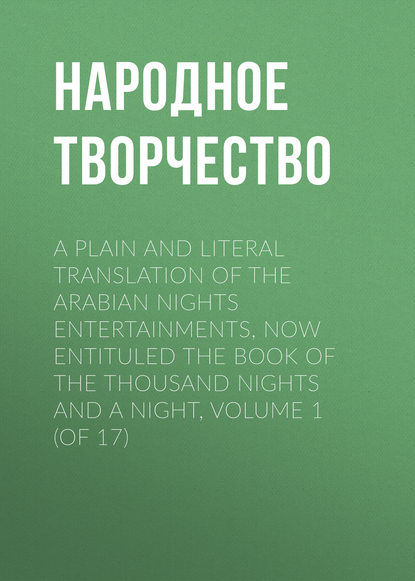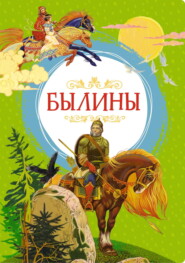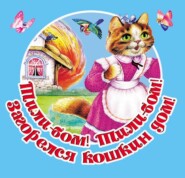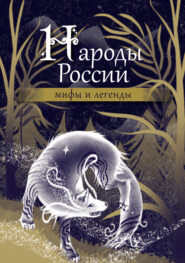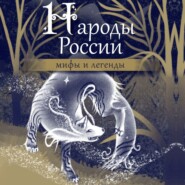По всем вопросам обращайтесь на: info@litportal.ru
(©) 2003-2024.
✖
A plain and literal translation of the Arabian nights entertainments, now entituled The Book of the Thousand Nights and a Night, Volume 1 (of 17)
Настройки чтения
Размер шрифта
Высота строк
Поля
A similar tale is still told at Akká (St. John d'Acre) concerning the terrible "butcher" – Jazzár (Djezzar) Pasha. One can·hardly pity women who are fools enough to run such risks. According to Frizzi, Niccolò, Marquis of Este, after beheading Parisina, ordered all the faithless wives of Ferrara to be treated in like manner.
21
"Shahrázád (Persian)=City-freer; in the older version Scheherazade (probably both from Shirzád=lion-born). "Dunyázád=World-freer. The Bres. Edit. corrupts the former to Sháhrzád or Sháhrazád; and the Mac. and Calc. to Shahrzád or Shehrzád. I have ventured to restore the name as it should be. Galland for the second prefers Dinarzade (?) and Richardson Dinazade (Dinázád=Religion-freer): here I have followed Lane and Payne; though in "First Footsteps" I was misled by Galland. See Vol. ii. p. 1.
22
Probably she proposed to "Judith" the King. These learned and clever young ladies are very dangerous in the East.
23
In Egypt, etc., the bull takes the place of the Western ox. The Arab. word is "Taur" (Thaur, Saur); in old Persian "Tora" and Lat. "Taurus," a venerable remnant of the days before the "Semitic" and "Aryan" families of speech had split into two distinct growths. "Taur" ends in the Saxon "Steor" and the English "Steer."
24
Arab. "Abú Yakzán"=the Wakener; because the ass brays at dawn.
25
Arab. "Tibn"; straw crushed under the sledge: the hay of Egypt, Arabia, Syria, etc. The old country custom is to pull up the corn by handfuls from the roots, leaving the land perfectly bare: hence the "plucking up" of Hebrew Holy Writ. The object is to preserve every atom of "Tibn."
26
Arab. "Yá Aftah": Al-Aftah is an epithet of the bull, also of the chameleon.
27
Arab. "Balid," a favourite Egyptianism often pleasantly confounded with "Wali" (a Santon); hence the latter comes to mean "an innocent," a "ninny."
28
From the Calc. Edit., Vol. I., p. 29.
29
Arab. "Abu Yakzán" is hardly equivalent with "Père l'Eveillé."
30
In Arab. the wa (وَ) is the sign of parenthesis.
31
In the nearer East the light little plough is carried a-field by the bull or ass.
32
Ocymum basilicum, the "royal herb," so much prized all over the East, especially in India, where, under the name of "Tulsi," it is a shrub sacred to the merry god Krishna. I found the verses in a MS. copy of the Nights.
33
Arab. "Sadaf," the Kauri, or cowrie, brought from the Maldive and Lakdive Archipelago. The Kámús describes this "Wada'" or Concha Veneris as "a white shell [whence to "shell out"] which is taken out of the sea, the fissure of which is white like that of the date-stone. It is hung about the neck to avert the evil eye." The pearl in Arab. is "Murwarid," hence evidently "Margarita" and Margaris (woman's name).
34
Arab. "Kat'a" (bit of leather): some read "Nat'a," a leather used by way of table-cloth, and forming a bag for victuals; but it is never made of bull's hide.
35
The Older "Cadi," a judge in religious matters. The Shuhúd, or Assessors, are officers of the Mahkamah or Kazi's Court.
36
Of which more in a future page. He thus purified himself ceremonially before death.
37
This is Christian rather than Moslem: a favourite Maltese curse is "Yahrak Kiddísak man rabba-k!"=burn the Saint who brought thee up!
38
A popular Egyptian phrase: the dog and the cock speak like Fellahs.
39
i. e. between the last sleep and dawn when they would rise to wash and pray.
40
Travellers tell of a peculiar knack of jerking the date-stone, which makes it strike with great force: I never saw this "Inwá" practised, but it reminds me of the water-splashing with one hand in the German baths.
41
i. e., sorely against his will.
42
Arab. "Shaykh"=an old man (primarily), an elder, a chief (of the tribe, guild, etc.); and honourably addressed to any man. Comp. among the neo-Latins "Sieur," "Signore," "Señor," "Senhor," etc. from Lat. "Senior," which gave our "Sire" and "Sir." Like many in Arabic the word has a host of different meanings and most of them will occur in the course of The Nights. Ibrahim (Abraham) was the first Shaykh or man who became grey. Seeing his hairs whiten he cried, "O Allah what is this?" and the answer came that it was a sign of dignified gravity. Hereupon he exclaimed, "O Lord increase this to me!" and so it happened till his locks waxed snowy white at the age of one hundred and fifty. He was the first who parted his hair, trimmed his mustachios, cleaned his teeth with the Miswák (tooth-stick), pared his nails, shaved his pecten, snuffed up water, used ablution after stool and wore a shirt (Tabari).
43
The word is mostly plural=Jinnís: it is also singular=a demon; and Ján bin Ján has been noticed.
44
With us moderns "liver" suggests nothing but malady: in Arabic and Persian as in the classic literature of Europe it is the seat of passion, the heart being that of affection. Of this more presently.
45
21
"Shahrázád (Persian)=City-freer; in the older version Scheherazade (probably both from Shirzád=lion-born). "Dunyázád=World-freer. The Bres. Edit. corrupts the former to Sháhrzád or Sháhrazád; and the Mac. and Calc. to Shahrzád or Shehrzád. I have ventured to restore the name as it should be. Galland for the second prefers Dinarzade (?) and Richardson Dinazade (Dinázád=Religion-freer): here I have followed Lane and Payne; though in "First Footsteps" I was misled by Galland. See Vol. ii. p. 1.
22
Probably she proposed to "Judith" the King. These learned and clever young ladies are very dangerous in the East.
23
In Egypt, etc., the bull takes the place of the Western ox. The Arab. word is "Taur" (Thaur, Saur); in old Persian "Tora" and Lat. "Taurus," a venerable remnant of the days before the "Semitic" and "Aryan" families of speech had split into two distinct growths. "Taur" ends in the Saxon "Steor" and the English "Steer."
24
Arab. "Abú Yakzán"=the Wakener; because the ass brays at dawn.
25
Arab. "Tibn"; straw crushed under the sledge: the hay of Egypt, Arabia, Syria, etc. The old country custom is to pull up the corn by handfuls from the roots, leaving the land perfectly bare: hence the "plucking up" of Hebrew Holy Writ. The object is to preserve every atom of "Tibn."
26
Arab. "Yá Aftah": Al-Aftah is an epithet of the bull, also of the chameleon.
27
Arab. "Balid," a favourite Egyptianism often pleasantly confounded with "Wali" (a Santon); hence the latter comes to mean "an innocent," a "ninny."
28
From the Calc. Edit., Vol. I., p. 29.
29
Arab. "Abu Yakzán" is hardly equivalent with "Père l'Eveillé."
30
In Arab. the wa (وَ) is the sign of parenthesis.
31
In the nearer East the light little plough is carried a-field by the bull or ass.
32
Ocymum basilicum, the "royal herb," so much prized all over the East, especially in India, where, under the name of "Tulsi," it is a shrub sacred to the merry god Krishna. I found the verses in a MS. copy of the Nights.
33
Arab. "Sadaf," the Kauri, or cowrie, brought from the Maldive and Lakdive Archipelago. The Kámús describes this "Wada'" or Concha Veneris as "a white shell [whence to "shell out"] which is taken out of the sea, the fissure of which is white like that of the date-stone. It is hung about the neck to avert the evil eye." The pearl in Arab. is "Murwarid," hence evidently "Margarita" and Margaris (woman's name).
34
Arab. "Kat'a" (bit of leather): some read "Nat'a," a leather used by way of table-cloth, and forming a bag for victuals; but it is never made of bull's hide.
35
The Older "Cadi," a judge in religious matters. The Shuhúd, or Assessors, are officers of the Mahkamah or Kazi's Court.
36
Of which more in a future page. He thus purified himself ceremonially before death.
37
This is Christian rather than Moslem: a favourite Maltese curse is "Yahrak Kiddísak man rabba-k!"=burn the Saint who brought thee up!
38
A popular Egyptian phrase: the dog and the cock speak like Fellahs.
39
i. e. between the last sleep and dawn when they would rise to wash and pray.
40
Travellers tell of a peculiar knack of jerking the date-stone, which makes it strike with great force: I never saw this "Inwá" practised, but it reminds me of the water-splashing with one hand in the German baths.
41
i. e., sorely against his will.
42
Arab. "Shaykh"=an old man (primarily), an elder, a chief (of the tribe, guild, etc.); and honourably addressed to any man. Comp. among the neo-Latins "Sieur," "Signore," "Señor," "Senhor," etc. from Lat. "Senior," which gave our "Sire" and "Sir." Like many in Arabic the word has a host of different meanings and most of them will occur in the course of The Nights. Ibrahim (Abraham) was the first Shaykh or man who became grey. Seeing his hairs whiten he cried, "O Allah what is this?" and the answer came that it was a sign of dignified gravity. Hereupon he exclaimed, "O Lord increase this to me!" and so it happened till his locks waxed snowy white at the age of one hundred and fifty. He was the first who parted his hair, trimmed his mustachios, cleaned his teeth with the Miswák (tooth-stick), pared his nails, shaved his pecten, snuffed up water, used ablution after stool and wore a shirt (Tabari).
43
The word is mostly plural=Jinnís: it is also singular=a demon; and Ján bin Ján has been noticed.
44
With us moderns "liver" suggests nothing but malady: in Arabic and Persian as in the classic literature of Europe it is the seat of passion, the heart being that of affection. Of this more presently.
45





